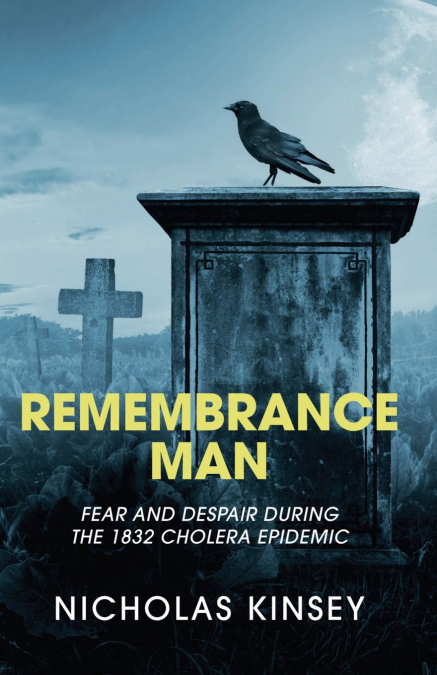
Nicholas Kinsey
August 1832 - St. Francis, Western Ontario'A two-wheel buggy rolled across the long grassy prairie near a large manor house. A man in a buckskin coat spied a young woman in a bonnet and a dirty white apron picking beans in the vegetable garden on the other side of the hedgerow. He stopped the buggy and stepped down, carefully picking up a baby boy wrapped in a blue blanket. He slipped through the hedgerow with the child under his arm and laid him down gently in a row of cabbages. He kissed the child’s forehead and wiped away his tears before returning to the buggy. With her back to the road, Gerty never noticed the man and the buggy disappearing in the distance. As she collected her basket of green beans for the return to the manor house, she spotted the child in the row of cabbages. She went over and peered down at the boy with his pale bluish complexion. His eyes lit up at the sight of her and Gerty asked: ’What are you doing here, little man?’'From the bestselling author of Playing Rudolf Hess, An Absolute Secret, Shipwrecked Lives, and White Slaves comes this extraordinary novel about the 1832 cholera epidemic in Western Ontario. Young Paolo works for his uncle as a gravedigger during the day and at night he earns a bonus from wealthy clients as a ’remembrance man’ whose job is to watch over selected graves for signs of the undead. He discovers a young woman who has been buried alive and is drawn into a terrifying story of revenge and insanity. This is a tale of murder, greed, and deceit, and the breakdown of society on the prairie frontier. Family members turn against family members, friends against friends, and soon everyone is out for themselves. 'AN UNFORGETTABLE TALE OF FEAR AND DESPAIR DURING A CHOLERA EPIDEMIC.'Cholera had many nicknames, ’King Cholera’ and ’the Blue Death’, due to the bluish pallor of its victims. It caused more deaths than any other disease in the 19th century. People were deathly afraid of cholera and fear spread faster than the disease itself. Cholera victims were simply abandoned on the roads, and wagons were sent around to collect the bodies and bury them in cholera pits. During those dark days, stories spread about reopening coffins in which the dead had apparently revived after burial, only to die in a futile attempt to escape. No one wanted to bury a loved one who might still be alive, which led to the habit of keeping corpses around so that the families could be sure the person had really died.Reader reviews:'A great read,' Ainsley MacLellan, CBC Radio Producer 'All in a Weekend'.'Remembrance Man will give you history, suspense and a fast-moving tale all in one book. A reader cannot ask for more than that.' BookSirens'Just finished reading ’Remembrance Man’ and I was completely blown away by this compelling and extraordinarily crafted fictional novel. The author skillfully draws upon historical facts surrounding the worldwide cholera epidemic in the mid-nineteenth century, to create a thrilling and intense crime story, the kind that gets under your skin and stirs your whole being. There isn’t a dull moment throughout the book.' Vivienne Gaudet, Quebec'I really enjoyed the book. It was informative, as well as entertaining. I was invested in the story and in the fate of the Remembrance Man, Paolo, and his love interest, Emily. Also, because of the way the author wrote about additional characters I was in it for them, too. Even with several characters mentioned throughout the book they were easy to keep up with. This was a can’t put down book for me and I finished it quickly. If you enjoy historical fiction, a twinge of romance, and some mystery and justice pick up this book and give it a read.' BookSirens